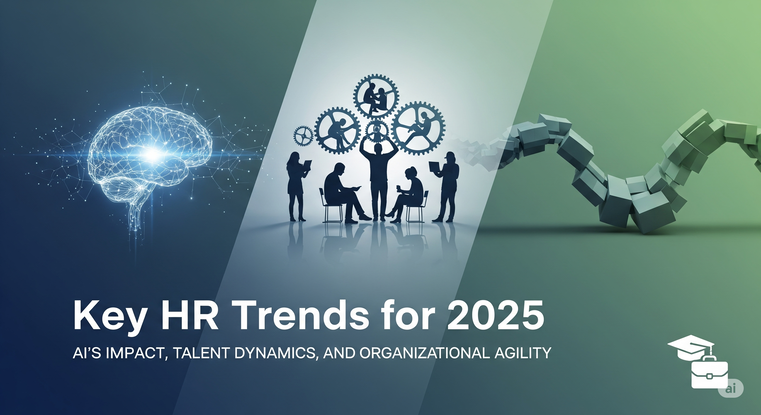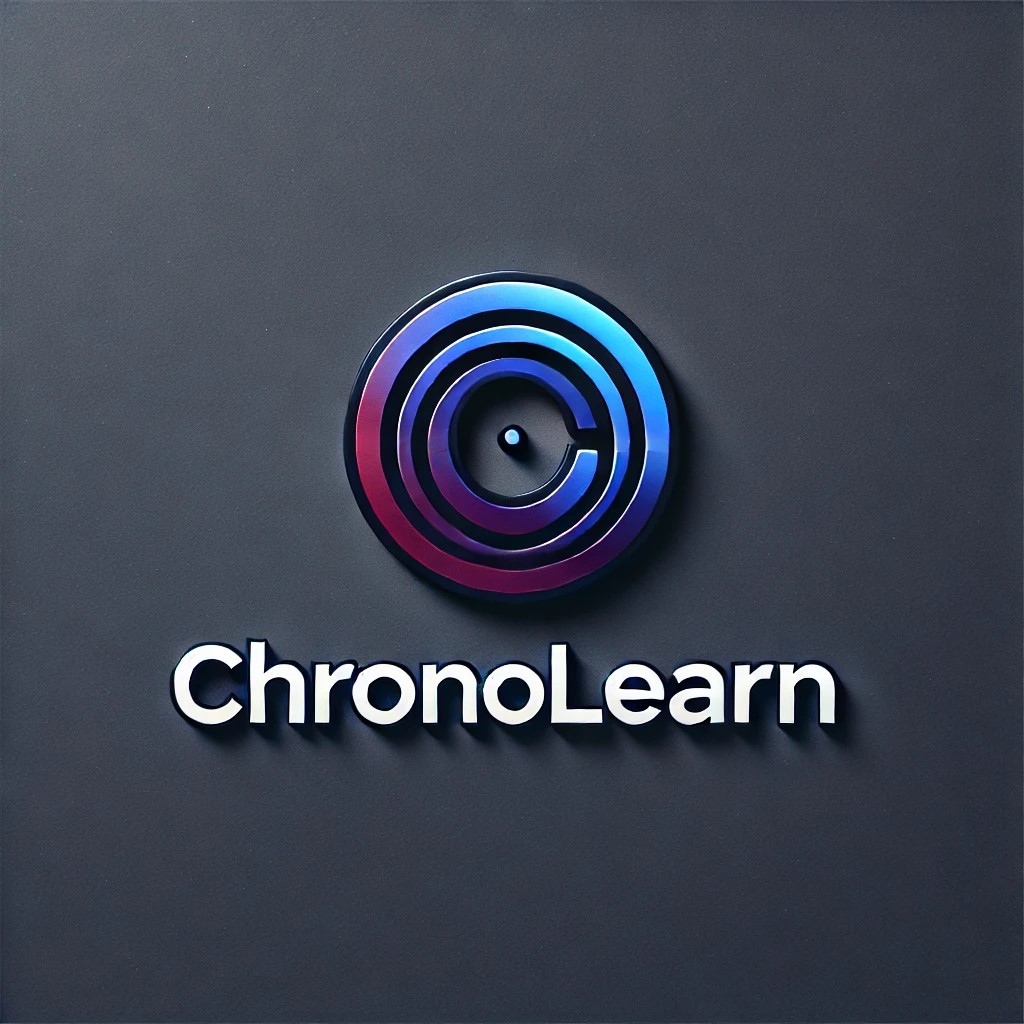
Key HR Trends for 2025: AI's Impact, Talent Dynamics, and Organizational Agility
Introduction
The HR function is no longer confined to payroll, compliance, and hiring—it has become a strategic powerhouse driving organizational success.
As we step into 2025, the pace of change in business, technology, and workforce expectations is faster than ever. Artificial Intelligence (AI) is reshaping hiring and employee engagement. Talent dynamics are shifting as workers demand flexibility, skills-focused opportunities, and purpose-driven work. Organizational agility is becoming a survival skill in an unpredictable global market.
According to Gartner, 76% of HR leaders say their organization’s success over the next five years depends on their ability to adapt to technological, demographic, and cultural changes.
In this detailed guide, we’ll explore the most influential HR trends for 2025—how AI is transforming human resources, the evolving nature of talent, and the strategies for building resilient, agile organizations that thrive in this era of disruption.
1. AI-Powered HR: From Automation to Prediction
In 2025, AI is not just streamlining administrative tasks; it’s shaping strategic HR decisions. AI tools are now being used to:
-
Predict turnover risks using sentiment analysis from employee feedback.
-
Personalize learning by recommending training modules based on skill gaps.
-
Automate candidate sourcing by scanning thousands of profiles in minutes.
-
Enhance diversity hiring through bias detection in job descriptions.
Trending Tools in 2025:
-
ChatGPT Enterprise & SearchGPT for recruitment outreach and communication.
-
Eightfold AI for predictive talent analytics.
-
Workday AI for automated workforce planning.
Example: A global IT firm reduced its hiring time by 40% using AI-powered resume screening while increasing diversity in its talent pool by 18%.
2. Skills-Based Hiring Over Degrees
Traditional degree-focused hiring is giving way to skills-first recruitment. Employers are valuing micro-credentials, bootcamp certifications, and portfolio-based evaluations over conventional qualifications.
Why It Matters in 2025:
-
Emerging technologies evolve faster than academic curricula.
-
Talent pools expand when degree barriers are removed.
-
Internal mobility increases as employees can transition based on skills, not titles.
Action Tip: Implement skills taxonomies in your ATS (Applicant Tracking System) to match candidates’ capabilities with job requirements.
3. Hybrid Work 2.0 – Flexibility With Structure
Hybrid work is no longer an experiment — it’s an established norm. However, 2025 brings Hybrid 2.0, which blends flexibility with clear productivity frameworks.
Key Practices:
-
Outcome-based performance tracking instead of hours worked.
-
AI-driven scheduling to balance office collaboration and remote work.
-
Digital-first onboarding for global hires.
Stat: According to Gartner, 74% of companies in 2025 are using hybrid models, with a rise in “office collaboration hubs” rather than traditional fixed seating.
4. Employee Experience (EX) as a Strategic Priority
In 2025, Employee Experience (EX) is a major competitive differentiator. Happy employees are 23% more productive and 18% less likely to quit.
Trending EX Strategies:
-
Personalized career growth roadmaps.
-
AI wellness bots that check burnout levels.
-
Gamified recognition programs.
-
Salary transparency platforms.
5. Data-Driven HR Decisions
From recruitment to performance evaluation, data analytics is transforming HR into a strategic powerhouse.
Examples of Data Use:
-
Predicting succession planning needs.
-
Forecasting talent demand based on business growth.
-
Identifying skills gaps for targeted L&D (Learning & Development) investments.
Tool Spotlight: Visier People Analytics and SAP SuccessFactors are leading platforms for workforce insights in 2025.
6. Diversity, Equity, and Inclusion (DEI) 2.0
Organizations are moving beyond diversity quotas to equity and belonging. AI tools are identifying pay gaps, and neurodiversity inclusion programs are expanding.
New DEI Trends:
-
Bias-free AI recruitment tools.
-
Cultural competency training for leaders.
-
Inclusive leadership scorecards.
7. Agile Organizational Structures
Rigid hierarchies are being replaced by agile teams that can pivot quickly in changing market conditions.
Benefits:
-
Faster decision-making.
-
Cross-functional collaboration.
-
Enhanced innovation.
Example: A fintech startup restructured into project-based teams and reduced product launch times by 30%.
8. Continuous Learning & Upskilling
With the half-life of technical skills now under 3 years, continuous learning ecosystems are critical.
Trending in 2025:
-
AI-personalized L&D platforms like Degreed and Coursera for Business.
-
Micro-learning in mobile formats.
-
Partnerships with industry leaders for specialized training.
9. HR Compliance & Ethical AI
As AI becomes central to HR, ethics and compliance are gaining importance. New laws in 2025 require AI transparency in hiring decisions.
Best Practices:
-
Audit AI algorithms for bias.
-
Document AI-driven hiring decisions.
-
Train HR teams in AI ethics frameworks.
Conclusion
The future of HR in 2025 is a blend of technology, agility, and human-centric strategies. Companies that integrate AI, data analytics, flexible work, DEI, and continuous learning will lead in attracting and retaining top talent.
HR is no longer just about people management — it’s about strategic business growth. The question is: Is your HR strategy ready for 2025?






